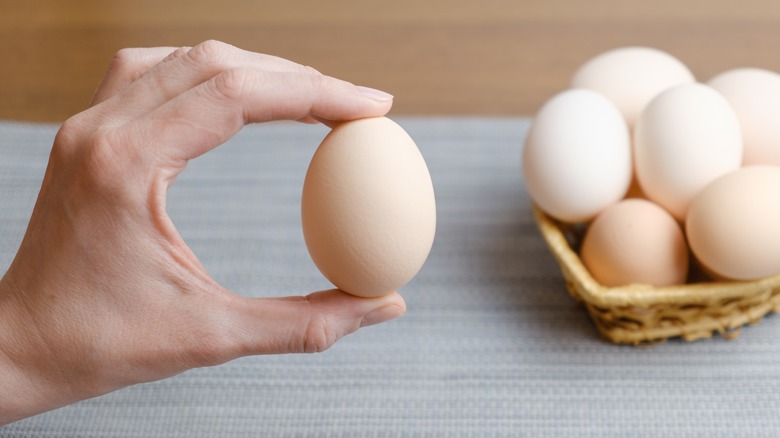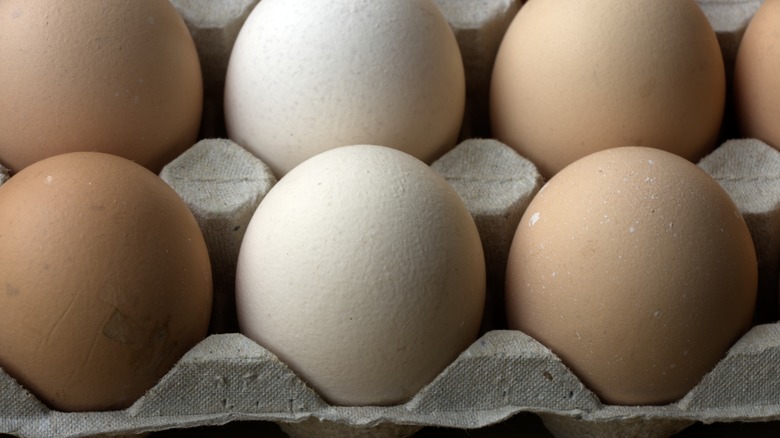What Qualifies As A 'Large' Egg?
It's always a bit unsettling to the home cook when a recipe strays from strict measurements. To be clear, teaspoons and measuring cups are far from perfect, especially for precision tasks such as measuring flour for baked goods. However, there is something undeniably comforting and confidence-building about a recipe that is firm in its demands. On the other hand, you're bound to come across far vaguer directives like 'a pinch of salt' or 'the juice of one lemon' that can leave you uncertain. Do your fingers 'pinch' as much as those of the recipe's author? Are your lemons the same size as the ones they used?
No ingredient is more commonly subjected to vague recipe directions than the egg. It makes sense that recipes would want to keep the number of eggs exact because, well, just imagine trying to measure a third of an egg. But things can get confusing when a recipe calls for 'large,' 'extra-large,' or even 'jumbo' eggs. If your recipe calls for the latter, don't go reaching for an ostrich egg. Here's what those sizes really mean.
Eggs are weighed by the dozen
Believe it or not, farmers aren't slapping sizes on egg cartons just to get you to spend more money. There are legal definitions for egg sizes that have been established by the United States Department of Agriculture. They measure eggs by weight but do it by the dozen rather than weighing individual eggs. According to the USDA's guidelines, 'large eggs' must weigh a minimum of 24 ounces per dozen, equivalent to two ounces per egg. Since the law measures by the dozen, each individual egg could vary. On the higher end of the spectrum, extra-large eggs come in at 27 ounces per dozen, and jumbo eggs are 30 ounces per dozen. Moving down in size, medium eggs are 21 ounces, and small eggs are 18 ounces, all weighed by the dozen.
It's important to note that some of the eggs' mass will not translate to your food, as you likely don't include eggshells in your recipe. It's more helpful to measure the mass of the egg white and yolk; the stuff we actually care about. Per Cook's Illustrated, a large egg yolk weighs roughly 0.54 ounces while the white weighs about 1.19 ounces for a total mass of 1.73 ounces per egg. So, if your recipe demands large eggs and you only have small or jumbo ones, you can crack them open and weigh the contents for the most accurate results.

